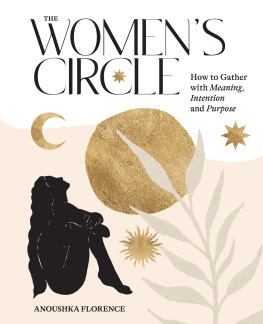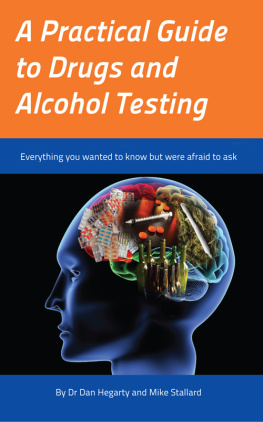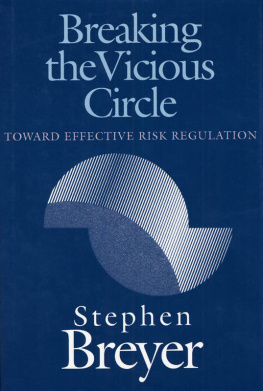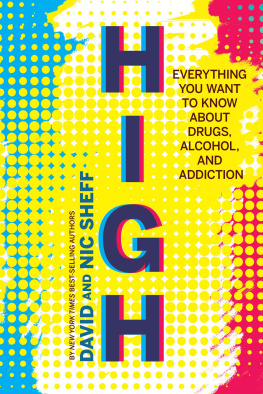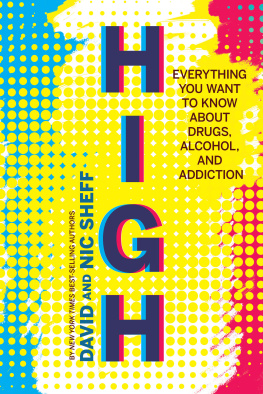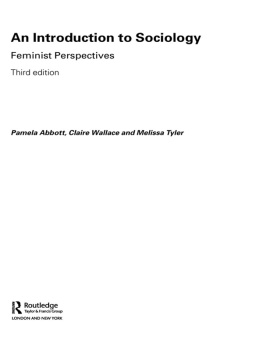WOMENS PERSPECTIVES ON DRUGS AND ALCOHOL
Womens Perspectives on Drugs and Alcohol
The vicious circle
PAMELA RAINE
Lancaster University
First published 2001 by Ashgate Publishing
Reissued 2018 by Routledge
2 Park Square, Milton Park, Abingdon, Oxon OX14 4RN
711 Third Avenue, New York, NY 10017, USA
Routledge is an imprint of the Taylor & Francis Group, an informa business
Copyright Pamela Raine 2001
All rights reserved. No part of this book may be reprinted or reproduced or utilised in any form or by any electronic, mechanical, or other means, now known or hereafter invented, including photocopying and recording, or in any information storage or retrieval system, without permission in writing from the publishers.
Notice:
Product or corporate names may be trademarks or registered trademarks, and are used only for identification and explanation without intent to infringe.
Publishers Note
The publisher has gone to great lengths to ensure the quality of this reprint but points out that some imperfections in the original copies may be apparent.
Disclaimer
The publisher has made every effort to trace copyright holders and welcomes correspondence from those they have been unable to contact.
A Library of Congress record exists under LC control number: 00107884
ISBN 13: 978-1-138-73337-4 (hbk)
ISBN 13: 978-1-315-18771-6 (ebk)
For my daughters Emily and Lucy
Contents
In the field of alcohol and drug use, gender has been traditionally defined as societys expectation concerning behaviour viewed as appropriate for members of each sex. A fuller notion of gender as both a process and an institution has been absent. For example, as a process, gender is a part of all human interactions and shapes the meaning of female and male and masculinity and femininity on cultural, political and economical levels. Here, gender has an effect on the social groupings of men and women and divisions between both the private and public arenas of social life.
As an institution, gender is a part of culture just like other components of culture such as symbols, language, norms, values and so on. It is a stable form of structured inequality and embedded in culture. In this context, gender is a normative and moralising system that exerts social control on all in society. Gender brings to society a set of inter-related norms centred on the activities of individuals. These individuals are marked by differences on the basis of being male and female as well as masculine and feminine.
Women who experience alcohol and drug problems go through a variety of problems of daily living by the very fact that these substances are embedded in their lives. Their lives are fiill of many obstacles both privately and publicly and these lives are riddled with shame. Furthermore, social expectations of these problems and the experiences of these problems are gendered.
In this book, Womens Perspectives on Drugs and Alcohol: The Vicious Circle, Pamela Raine recognises the centrality of gender and gender relationships. She goes beyond the traditional view of gender that has been put forward in this field. She recognises the complexities of gender as a process and an institution and appreciates the subtle and often hidden, unexpected ways that gender infiltrates the lives of women drug and alcohol users.
On a theoretical level, Pamela Raine introduces refreshing, new ideas into a field where women have been traditionally the underdogs. She offers a thorough and thought-provoking account of womens problematic experiences with alcohol and drugs. Consciously, she allows the voices of women to come through. In turn, these voices are contextualised by key themes drawn from compelling narratives. For example, these substances created chaos in the lives of these female substance users, while complex mechanisms of social control shaped their gendered experiences of these substances. Help-seeking responses of professionals and the advantages and disadvantages of treatment are contextualised as key areas in these gendered experiences. In the end, the author makes far-reaching recommendations that match the results of this important research.
We learn how gender influences the ways in which users co-ordinate their space, their time, their substances, community resources, and others (whether those others be other users, relatives, families, carers). This is a rich account and a welcomed piece of research in a field which urgently needs gender sensitive work.
Elizabeth Ettorre
Professor of Sociology
University of Plymouth
I would like to thank the following people and institutions for their help during the writing of this book: Keith Soothill and Carole Truman, my PhD supervisors, for their constructive criticisms, encouragement, and belief in my abilities throughout the research process; Roger Clough for his input in the early stages of the study; my postgraduate colleagues in Applied Social Science, particularly those with whom I shared room space, Lisa Bostock and Schuichi Ito; Veronica Holmes and Mary Toder for their practical help and unfailing cheerfulness; all the staff in the alcohol and drug agencies I visited for their time and patience, particularly Tony Ryan from Turning Point, Manchester; the women who took part in my study who generously shared their stories with me; my parents for their support and childminding, without whom I would have been unable to continue; and my daughters Emily and Lucy who have borne the brunt of my lapses in parental attention over the past few years. Particular thanks go to Elizabeth Ettorre, of the University of Plymouth, for her kindness and encouragement, and for writing the foreword to this book.
Thanks also to the Economic and Social Research Council, who funded the research on which this book is based from October 1996 to March 1999.
all women share the social predicament which can lead to problems with drugs. It could be me, or you, or any woman, who experiences such problems. (Sargent, 1992, p4)
This book explores a number of questions concerning womens problem drug use and drinking. It details findings from research which examined the type of problems women experience in relation to drinking and drug use; sought to determine how, why, and by whom a womans substance use becomes identified as a problem; and to consider what happens when women seek help for their problems. A central argument of this book is that the cultural, social, and economic inequalities women experience as women are crucial to an understanding of their drinking and drug taking. As its title suggests, the main focus of the book is on womens personal experiences of drug use and problem drinking.
As a means of setting the discussion in a wider context, however, I look first at feminist critiques concerning welfare provision for women, and how these relate to alcohol and drug services.
Alcohol and Drug Services for Women in the Context of Health
Contemporary feminist debates concerning the impact of health care on women are characterised by their diversity. Common themes, however, include the controlling, repressive aspects of medical practices and relationships in interactions with women, and male control of the health profession at the highest levels (Pascall, 1997). Traditionally, womens roles are rooted in the private sphere of the family, providing care for others; both dependent on a male provider, and having others - children, the elderly and the sick - dependent upon them. As providers of informal care, therefore, they are placed in a particular relation to health care providers in the public sphere. Their interactions with health professionals may, for example, be affected by stereotypical assumptions on the part of doctors as to what constitutes womens role in society, and what is appropriate behaviour for women (Ettorre and Riska, 1995). Furthermore, imbalances of power between doctor and female patient frequently influence such exchanges (Barrett and Roberts, 1978; Roberts, 1985); negatively affecting womens ability to negotiate from positions of strength (Dobash, Dobash and Cavanagh, 1985). The medical profession has been criticised, therefore, for exerting undue control over womens lives, particularly in relation to reproduction and fertility control.




